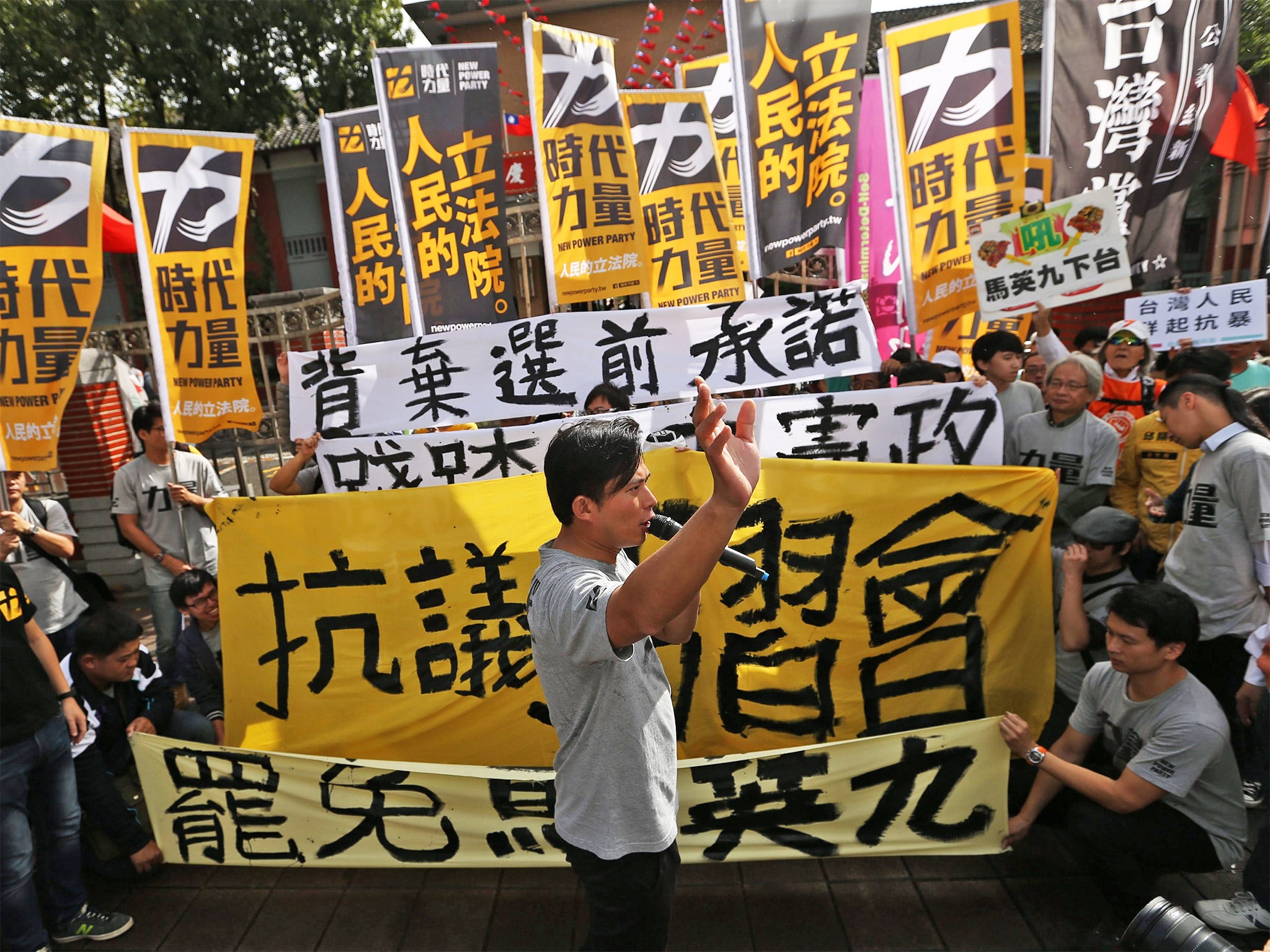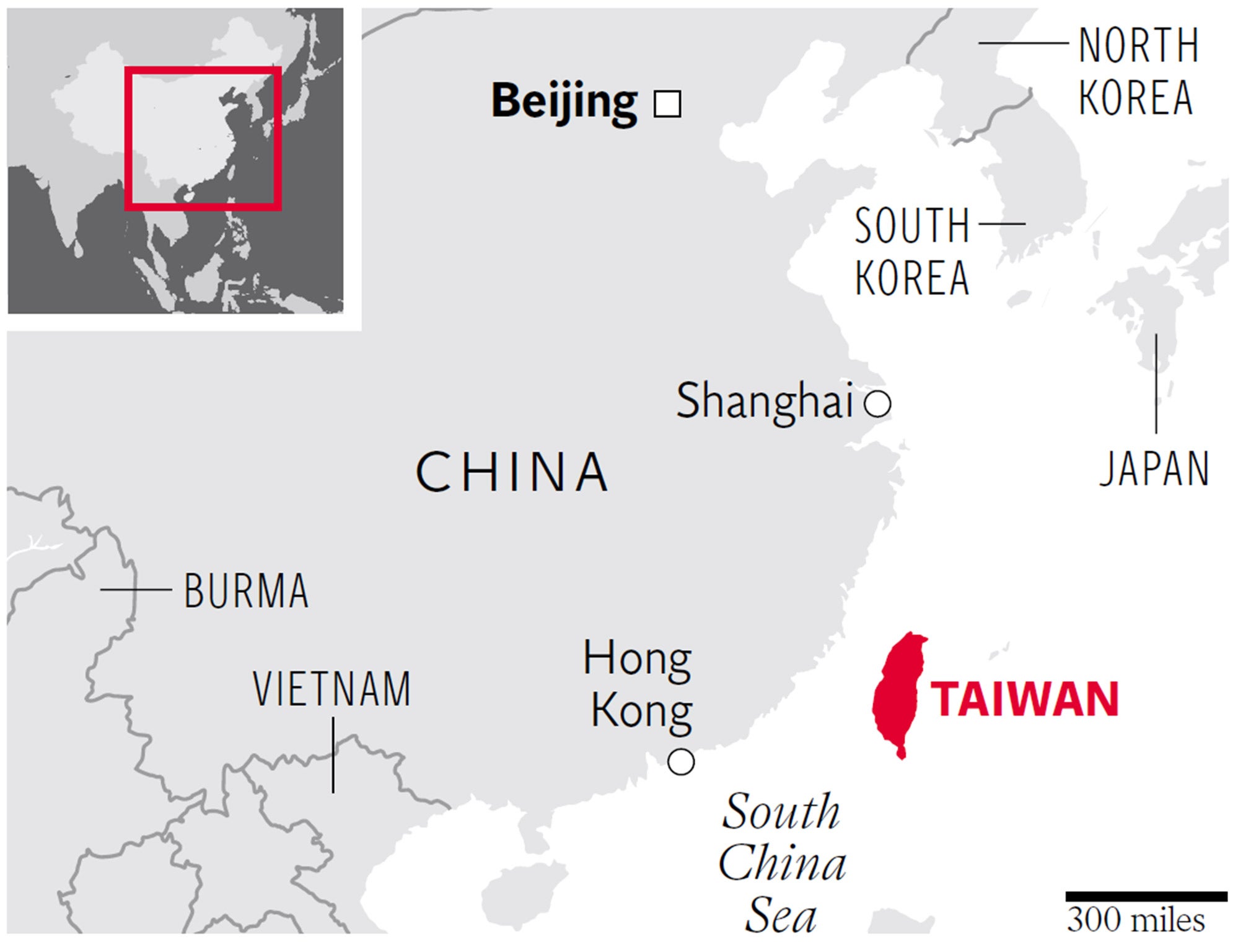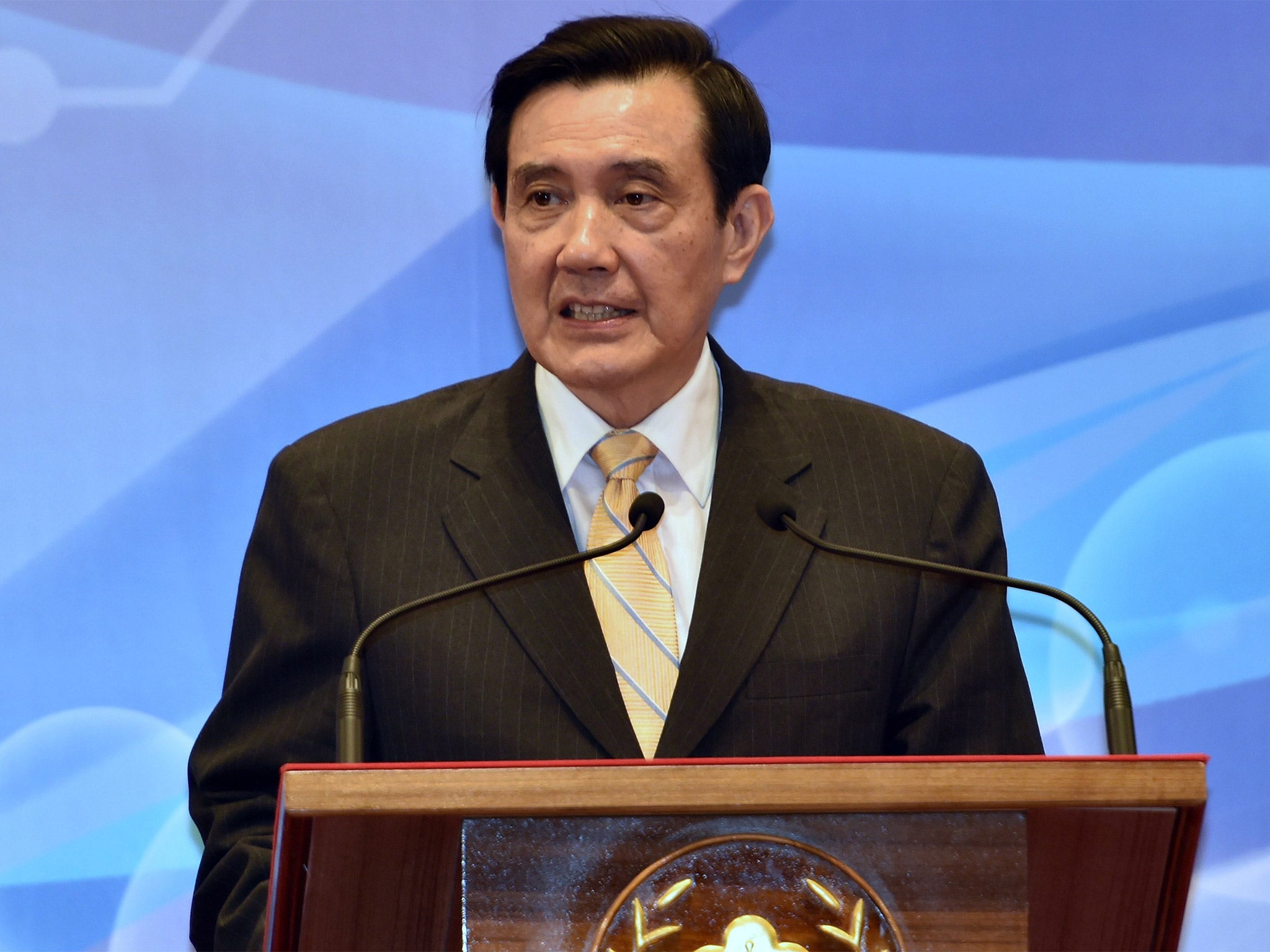China-Taiwan summit: Presidents Xi Jinping and Ma Ying-jeou to meet amid fears over Beijing's increasing influence
News of the historic summit has gone down badly with opponents, who fear the meeting could be damaging for Tawanese democracy

The presidents of China and Taiwan will meet at an unprecedented summit this weekend, the first since the Communist revolution of 1949, amid claims Beijing is attempting to influence elections on the US-allied island next year.
During Saturday’s summit, Xi Jinping and Ma Ying-jeou, who do not acknowledge one another as a head of state, will be referred to as the “leaders of the two sides” of the Taiwan Strait, not as presidents.
As US concerns mount over Chinese territorial expansion in the South China Sea, presidential and parliamentary elections are being held in Taiwan in January which could lead to Mr Ma, the pro-China leader of the nationalist party, the Kuomintang (KMT), being replaced by Tsai Ing-wen, the leader of the nationalist Democratic Progressive party (DPP).
Under the leadership of Mr Ma, who is at the end of his two-term limit, discontent at Chinese influence in Taiwan has grown. Ms Tsai said she was taken aback when the talks were announced. “I believe people across the country, like me, felt very surprised,” she said. “To let the people know in such a hasty and chaotic manner is damaging to Taiwan’s democracy.”

Ms Tsai’s party spokesman, Cheng Yun-peng, was more forthright. “How can people not think of this as a political operation intended to affect the election?”
Taiwan has in effect been independent since the end of the Chinese civil war in 1949, when the KMT fled to the island following its defeat by Mao Tse Tung’s Communists. While Beijing believes Taiwan is part of “One China”, the island remains closely allied with Washington.
In a backlash against creeping dependence on China, the KMT suffered resounding defeats in local elections last year. Mr Ma said the purpose of his trip was to “maintain the status quo”. No agreements would be signed or joint statements agreed to, he added. Officials said Mr Ma would concentrate on promoting “the peaceful development of cross-strait relations”.
“This will be tricky politically in Taiwan, as the opposition will obviously use this to charge Ma and the Nationalists with kowtowing to Beijing,” said Alan Romberg, East Asia programme director with think-tank the Stimson Centre. “Ma and presumably the rest of the Nationalists will cast this as demonstrating the benefits of adhering to the 1992 Consensus as a constructive basis for handling cross-strait relations – indeed as the indispensable basis.”

The 1992 Consensus was an agreement that formed the basis of talks between the two sides, under which both consider Taiwan and the mainland to be one country. Zhang Zhijun, head of China’s Taiwan Affairs Office, called the meeting a milestone that would help manage conflict and would gain “wide support from all walks of life across the strait and the international community”.
Xinhua, the official Chinese news agency, described the talks as a “breakthrough in face-to-face exchange and communication between the two leaders across the Taiwan Strait after hardships and twists since 1949”.
It is a milestone in cross-straits relations as it will set a precedent for future relations
In Beijing, meanwhile, Shih Ting, 28, who is originally from Taipei, said: “I think after this meeting, maybe Taiwan’s position will be clearer. People would know directly how the Chinese government thinks about the status quo and if they have any intention to change it. The whole election is actually all about one issue, the relations with China.”
The meeting came about after Chinese and Taiwanese officials met in the Chinese city of Guangzhou last month. Singapore’s Foreign Ministry said it was asked by the two sides to “facilitate”.
In 1996, China’s President Jiang Zemin ordered missile tests and war games in the seas around Taiwan to try to intimidate voters not to back Lee Teng-hui, who China believed was moving the island closer to formal independence. The crisis brought the two sides to the verge of conflict and prompted US President Bill Clinton to order a US carrier task force to sail through the Taiwan Strait in a warning to Beijing.
“It is a milestone in cross-straits relations as it will set a precedent for future relations,” Xu Xue, a Taiwanese affairs expert at Xiamen University’s Institute of Taiwan Studies, told the South China Morning Post regarding the announcement.
Any concessions Mr Ma extracts from China could help the Nationalist presidential candidate Eric Chu in the polls, said Willy Lam, a Hong Kong Chinese politics expert. Mr Xi also hopes to give the Nationalists a boost, while showing mainland Chinese that he could be the best bet in decades for achieving unification, Mr Lam said.
Pro-independence demonstrators rallied outside the parliament in Taipei to protest against the planned meeting. One banner urged Mr Ma: “Don’t come back if you go.” “We will resolutely oppose this,” Hung Te-jen, told the Associated Press.
“Ma is sneaking around to sell off Taiwan.”
Join our commenting forum
Join thought-provoking conversations, follow other Independent readers and see their replies
Comments
Bookmark popover
Removed from bookmarks